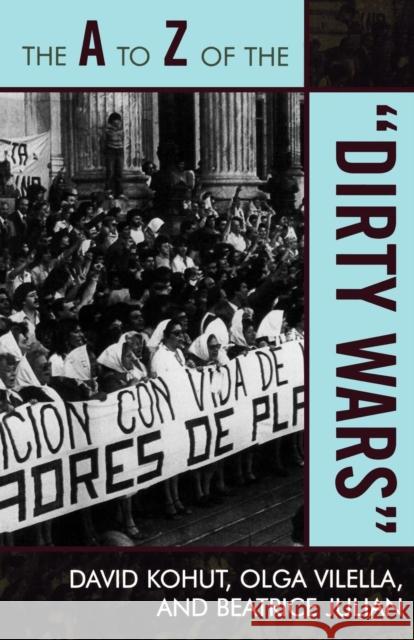The A to Z of the 'Dirty Wars' » książka
The A to Z of the 'Dirty Wars'
ISBN-13: 9780810868120 / Angielski / Miękka / 2009 / 250 str.
The A to Z of the "Dirty Wars" covers the most recent period of military dictatorship in Argentina (1976-1983), Chile (1973-1990), and Uruguay (1973-1985), when national-security regimes waged war against suspected subversives. The chief targets of these regimes were leftists, especially armed guerrillas and their supporters, though the term "subversive" came to include anyone perceived to be a threat to the status quo. Unlike a conventional war fought against a physical enemy, a "dirty war" (guerra sucia) is fought against an ideology. The difficulty of rooting out such an unconventional enemy was thought to justify unconventional tactics. As a result, thousands of citizens were abducted by security forces, illegally detained, and tortured. Although the term "dirty war" is most closely associated with Argentina during the 1970s, it has since become a byword for state-sponsored terror in other parts of the world and in other historical contexts. The reason for focusing on the Southern Cone of South America is threefold. First, these countries are often discussed together in the literature on dictatorship and its aftermath. Second, they were among the most notorious offenders in a region noted for human rights abuses. Third, their continuing efforts to bring "dirty war" participants to justice have renewed interest in the period, especially in the light of debate on how to prosecute human rights offenders in other parts of the world. Through a chronology for each country, an introduction, a lengthy bibliography, and cross-referenced dictionary entries, The A to Z of the "Dirty Wars" describes the period, including the background and aftermath.











